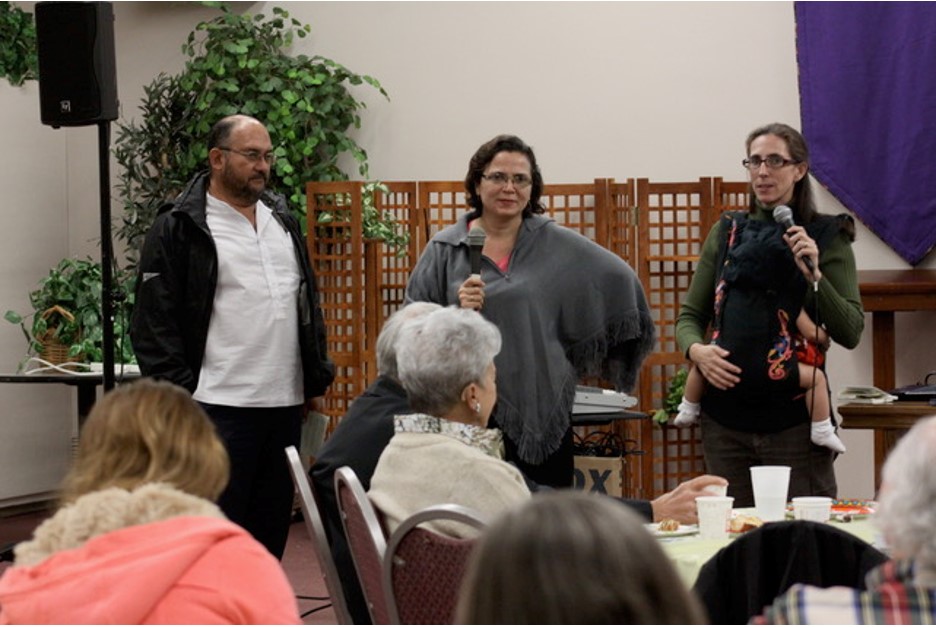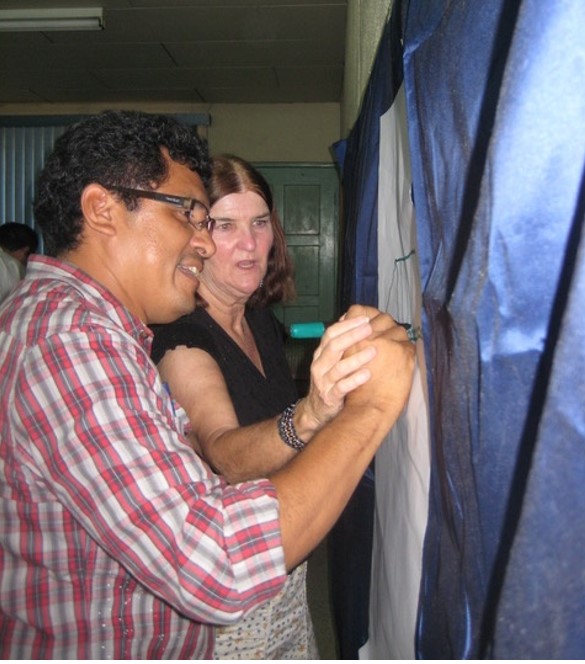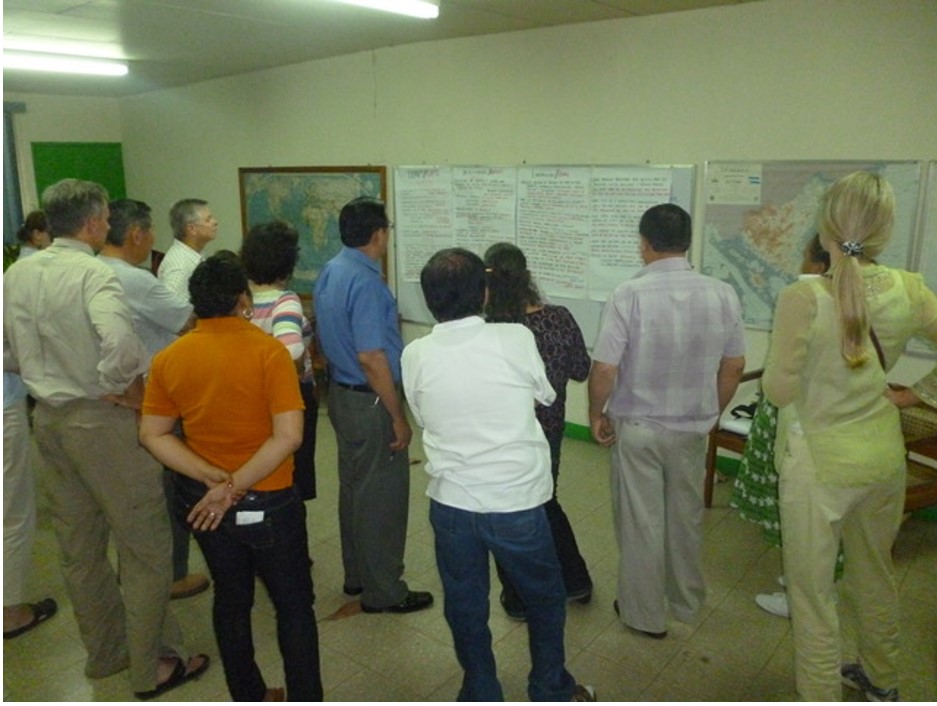A Letter from Tracey King-Ortega, serving as regional liaison for Central America, based in Nicaragua, currently in the U.S.
Summer 2021
Write to Tracey King-Ortega
Individuals: Give online to E200518 for Tracey King-Ortega’s sending and support
Congregations: Give to D507539 for Tracey King-Ortega’s sending and support
Churches are asked to send donations through your congregation’s normal receiving site (this is usually your presbytery)
Subscribe to my co-worker letters
Dear friends,
Over this past year, the Presbyterian Mission Agency, taking advantage of our newfound ability to connect virtually, has intentionally taken on the serious and important work of diversity, equity and inclusion training for all of its staff. Participating in these sessions has made me proud of the hard work our denomination is committed to. It has also caused me to reflect much on the different ways I, as an individual, and we, as a church, show up in this world, what we see and often don’t see, and how we can do better on so many different fronts. It is humbling to know and acknowledge the many ways we have gotten it wrong, but also empowering to recognize the spaces that we are showing up in healthier ways.
Digging deeper into this work, beyond the all-staff sessions, I’ve also participated in several more intimate spaces where we are able to think about how this applies directly to our work in mission service. At a recent meeting, we reflected on and shared stories of why race equity in mission matters.
First, what do we mean by the term “race equity”? I found this definition online, that I quite like, by Glenn Harris, president of Race Forward and publisher of Colorlines:
Racial equity is about applying justice and a little bit of common sense to a system that’s been out of balance. When a system is out of balance, people of color feel the impacts most acutely, but, to be clear, an imbalanced system makes all of us pay.
Being from the U.S. and having spent decades of my life in Central America, it is clear that the system is out of balance. It is complicated, but in just looking at migration, root causes, and how migrants and the border are portrayed in the media, I know that as interdependent as we inevitably are, the system is neither working here in the U.S. or the Latin America region. And whether we admit it or not, race plays a factor.
In my work as a regional liaison, I understand my primary role as creating spaces for encounters that might not ordinarily happen. Churches, feeling called to international mission, seek out ways to engage in other parts of the world, and I do my best to find healthy and equitable ways for them to relate. I always talk to them about the value of partnership and the importance of mutuality in mission. Historically, those of us from the U.S. have been seen as imposing our own agenda. We believe that we know what needs to happen to the problems we think need fixing. This attitude is problematic on so many levels. Partnership, striving to be equals in our mission relationships, seeing not just needs, but first embracing the gifts that each partner brings, really transforms our perspectives and can maximize the impact we have on one another.I have had the pleasure of facilitating a partnership between my home congregation, St. Peter’s by the Sea, and CIEETS (the InterChurch Center for Theological and Social Studies) in Nicaragua. For over a decade, this unique relationship was primarily built through monthly Bible studies done virtually. This began long before Zoom was created, so I’d like to think we were quite “cutting edge.” We would alternate months between St. Peter’s and CIEETS as to who would lead the study by choosing the Bible verse and facilitating the discussion. I, and at times others, would serve on these calls as interpreter. I know that members from my congregation have really benefitted from experiencing new ways to approach and interpret scripture, challenging them to be more faithful in their day-to-day living.
I have also witnessed how significant this relationship has been for the Nicaraguans. It has provided them an experience of feeling like equal partners in a relationship, walking and learning together. I know this because they have explicitly said so on numerous occasions. On one occasion, CIEETS asked me to facilitate a partnership workshop with a group from another church exploring a possible partnership. At one point in the discussion, CIEETS’s executive director, Jairo, shared that he felt a sort of ingrained inferiority as a Latino but then lifted up CIEETS’s relationship with St. Peter’s. He then revealed how the humility and respect the congregants of St. Peter’s had shown them had been an amazing example of mutuality and equality, giving CIEETS insight into how true mutual relationships should be. It was a very powerful testimony and made me feel that in some small but significant way, we are doing something right by simply changing the way we see and relate to one another.
I’d like to believe that this kind of shift in how we relate across borders and continents makes a difference in our lives and the lives of our partners. More recently, I checked in with CIEETS to see how things are going and get their perspective on what feels like increasingly complicated and hopeless sociopolitical problems in Nicaragua. As they struggle to makes sense of the worsening situation around them, our spiritual support is requested more than ever.
On our last call, they said to me, “our relationship goes well beyond a budgetary one. Your words, your prayers mean a lot. Simply knowing that others know what we are going through gives us hope. We know that you know that we are not just our crisis.” Their situation is desperate, and it would be easy to see them just as a set of unending problems. But because God has called us to mission in partnership, we see them as fellow siblings in Christ, with all their gifts and blessings to share in hopes that only together, as equals, we can build God’s kindom.
Developing these kinds of long-term and transformative mission partnerships is such a gift, and I believe our call as the church. I want to thank you for being a part of making following this call possible for me, whether it be through your prayers and encouragement that sustain me or your financial gifts that send me.
Blessings and peace,
Tracey
Please read the following letter from Sara P. Lisherness, the interim director of World Mission:
Dear partners in God’s mission,
I don’t know about you, but daily my heart grows heavier. News about the pandemic, wars, wildfires, gun violence, racism, earthquakes and hurricanes cloud my vision. It’s hard to see hope; our world is in a fog. Yet we trust that God’s light and love transcend the brokenness of this time.
God is at work transforming the world, and you, through your prayers, partnership and encouragement, are helping us share this good news. Thank you for your faithful and gracious support of our mission personnel.
How can we see through the fog? What will the church be after the pandemic? Could it be that God is doing “a new thing” and is inviting us to perceive it? Through all the uncertainty we know that God’s steadfast love and care for all creation will prevail and that God’s Spirit is at work in each of us.
We all have an integral part to play in fulfilling God’s mission. As we seek to grow together in faithfulness there are three important steps I invite you to take in supporting our shared commitments to God’s mission:
Give – Consider making a year-end financial contribution for the sending and support of our mission personnel. Your support helps mission personnel accompany global partners as together they share the light of God’s love and justice around the world. Invite your session to include support for mission personnel in its annual budget planning.
Act – Visit The Mission Yearbook for Prayer and Study to delve deeper into the work God is doing through the PC(USA) and its partners in ministry around the globe: pcusa.org/missionyearbook.
Pray – Include our mission personnel, our global partners, and our common commitments to share God’s grace, love, mercy and justice in your daily prayers.
Thank you for your faithfulness to God’s mission through the Presbyterian Church. It is my prayer that you will continue to support this work with your prayers, partnership, and financial gifts in the coming year. We hope you will join us and our partners in shining a beacon of hope throughout the world.
In the light of hope,

Sara P. Lisherness, Interim Director
World Mission
Presbyterian Mission Agency
Presbyterian Church (U.S.A.)
To give please visit https://bit.ly/PCUSAmission
You are the light of the world. A city built on a hill cannot be hid. No one after lighting a lamp puts it under the bushel basket, but on the lampstand, and it gives light to all in the house. In the same way, let your light shine before others, so that they may see your good works and give glory to your Father in heaven. Matthew 5:14-16
![]() You may freely reuse and distribute this article in its entirety for non-commercial purposes in any medium. Please include author attribution, photography credits, and a link to the original article. This work is licensed under a Creative Commons Attribution-NonCommercial-NoDeratives 4.0 International License.
You may freely reuse and distribute this article in its entirety for non-commercial purposes in any medium. Please include author attribution, photography credits, and a link to the original article. This work is licensed under a Creative Commons Attribution-NonCommercial-NoDeratives 4.0 International License.


